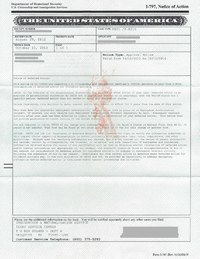
Photo from wikipedia
To date, little research has taken a mixed-methods strategy to consider the ways in which living “in the shadows” without recognized legal status may affect mental health. In this study,… Click to show full abstract
To date, little research has taken a mixed-methods strategy to consider the ways in which living “in the shadows” without recognized legal status may affect mental health. In this study, we took this approach, to examine how legal status, as well as stressors (deportation worries, financial concerns) and potentially protective factors (faculty support, peer support), affect anxiety levels of undocumented Latinx undergraduates from colleges across California. We surveyed 486 participants including both standardized measures as well as open-ended responses. We found that rates of self-reported anxiety between undocumented females were 4 times that of the norm population and that of male undocumented students were 7 times higher as measured by the GAD-7 in the moderate and severe ranges. Our predictive models suggested that participants' rates of anxiety were in large part related to worries about financing their education and their daily living expenses as well as detainment and deportation; having an institutional agent such as a professor whom they can turn to for support served to buffer the effects of anxiety. Qualitative findings triangulated the quantitative findings and provided further insights into the experience of living with the stresses of social exclusion and liminal status.
Journal Title: Frontiers in Psychiatry
Year Published: 2020
Link to full text (if available)
Share on Social Media: Sign Up to like & get
recommendations!